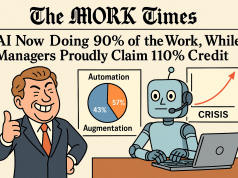In the wake of a global pandemic, the blueprint of the traditional workplace has undergone significant renovations. The shift has not only changed where we work but fundamentally altered the very nature of work itself. The gig economy, once a burgeoning niche, has exploded into a mainstay within the workforce, dramatically shaping the employment landscape almost overnight.
The gig economy refers to a labor market characterized by the prevalence of short-term contracts or freelance work, as opposed to permanent jobs. The COVID-19 pandemic has accelerated its growth, as businesses were forced to pivot and workers sought flexible and remote opportunities. In a post-pandemic world, the gig economy has become an essential component of employment, offering both challenges and opportunities for employers and workers alike.
For workers, the gig economy has brought a level of flexibility previously unseen. Freelancers can choose when, where, and for whom they work, prioritizing work-life balance and personal freedom. However, this freedom comes with a cost. Gig workers often lack the traditional safety nets of employment, such as healthcare benefits, retirement plans, and job security. For some, the gig economy is a liberating choice; for others, it’s a necessity, born out of a lack of alternative full-time employment opportunities.
Employers, on the other hand, have had to contend with the gig economy’s disruption of conventional recruitment and retention strategies. The transient nature of gig work can lead to a revolving door of talent, making it challenging to maintain engagement and company culture. Firms must now adapt by offering more than just competitive remuneration; they need to create a sense of community and purpose to attract and retain the best gig talent.
One of the most profound changes the gig economy has introduced is the transformation of traditional workplace models. Businesses are rethinking their need for large office spaces, long-term leases, and even the standard 9-to-5 workday. With the rise of coworking spaces and digital collaboration tools, companies are finding new ways to manage teams that are spread out across cities, countries, and continents.
However, the gig economy is not without its flaws. The on-demand nature of gig work can result in inconsistent income, making financial planning difficult for workers. Furthermore, the lack of regulation and protection for gig workers continues to be a point of contention that governments and organizations must address.
Companies that wish to remain competitive in this evolving market must adapt by cultivating a dynamic and engaging work environment that appeals to gig workers. This includes offering flexible work arrangements, competitive pay, professional development opportunities, and recognizing the value that each gig worker brings to the table.
In conclusion, the future of work in a post-pandemic world is one that embraces the gig economy. For employers, the challenge will be to balance the benefits of a flexible workforce with the need to maintain a committed and cohesive team. For workers, the gig economy offers independence and the opportunity to shape their careers on their own terms. As we move forward, the success of both will depend on creating a new work culture that values flexibility, innovation, and inclusivity.
The pandemic might have expedited the arrival of the gig economy, but it is clear that it is here to stay. How we adapt to this new normal will define the workplaces of tomorrow.




























